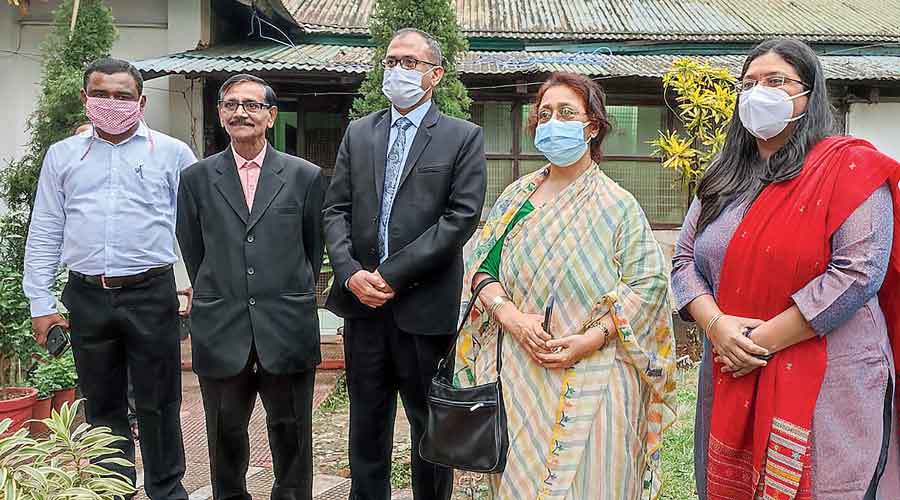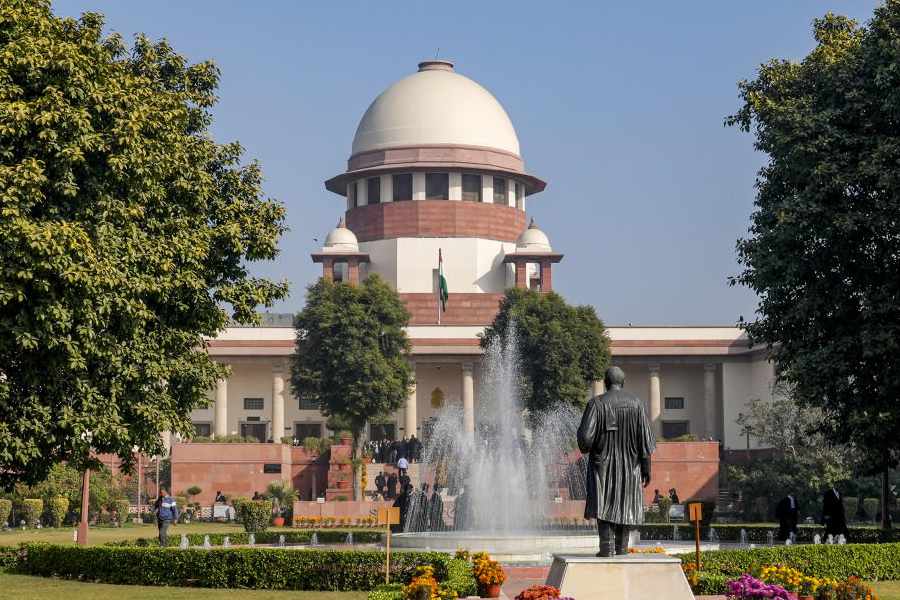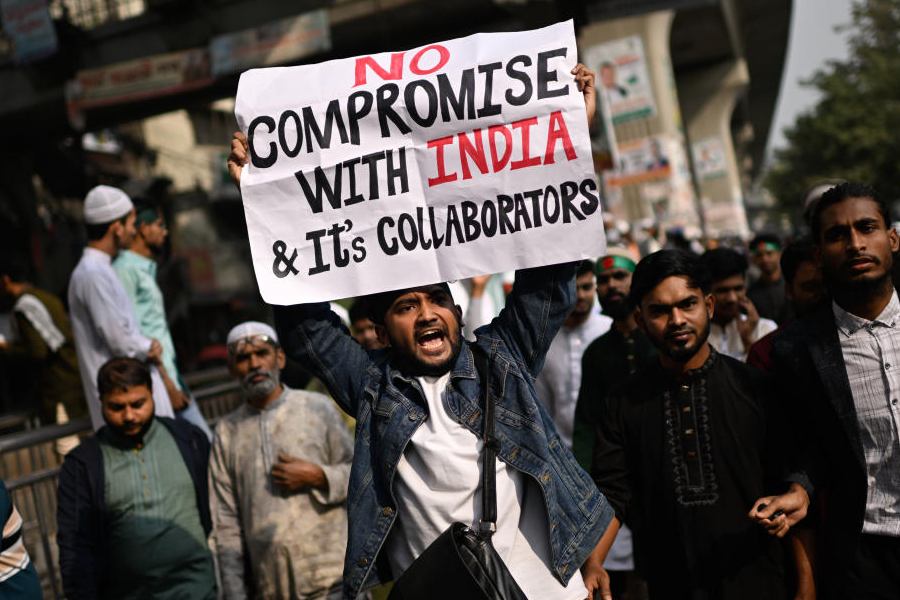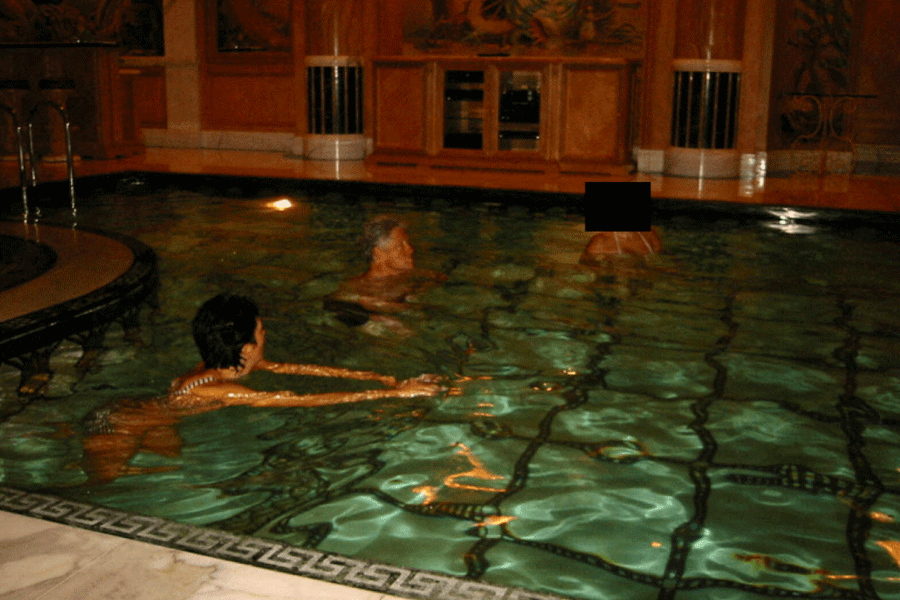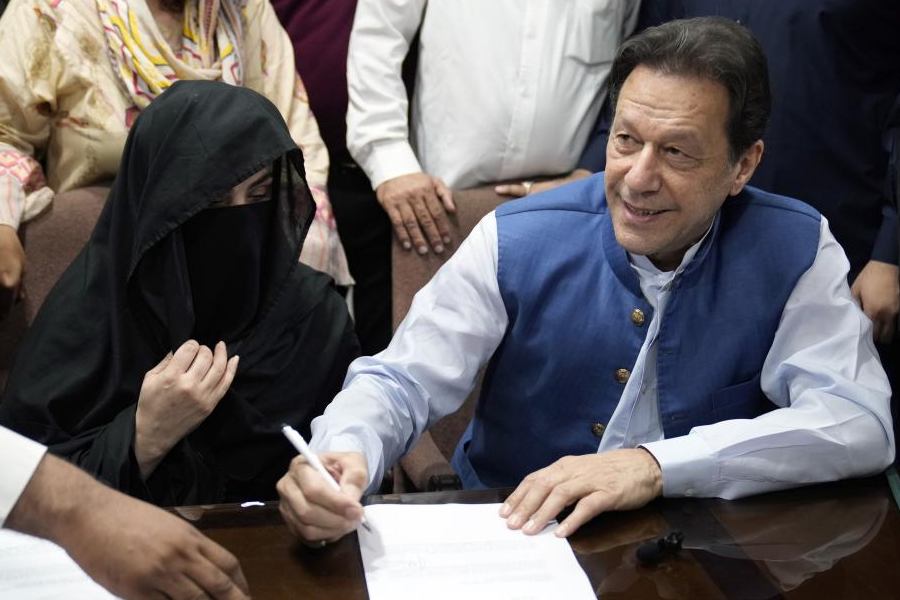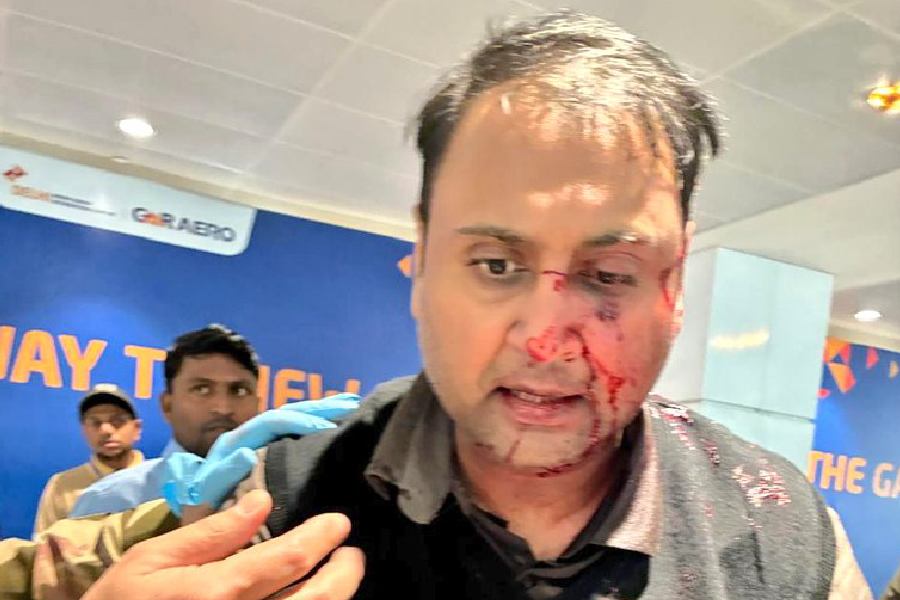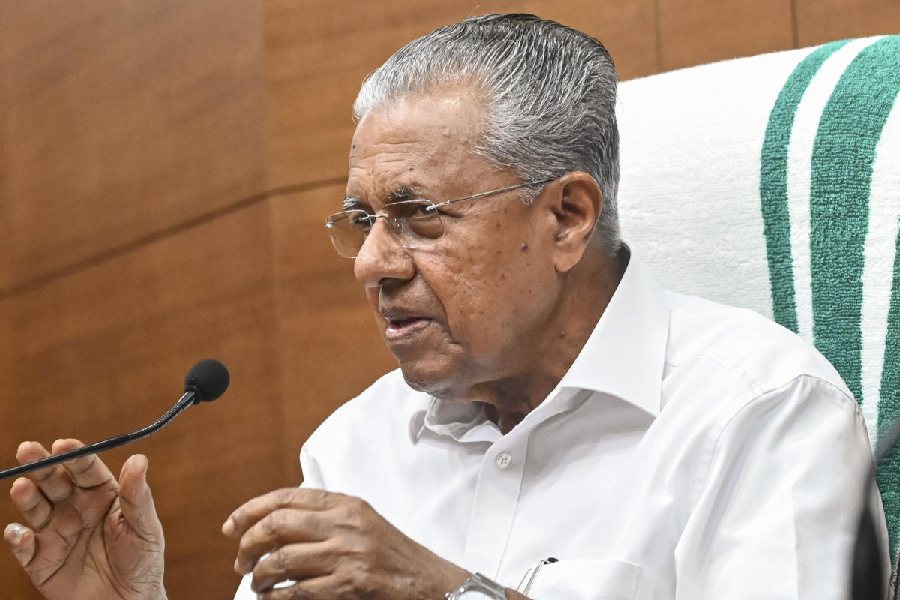Sixty-year old Seemin Hossain Rimi, daughter of the first Prime Minister of Bangladesh who along with her family escaped to Tripura after a murderous military crackdown during the 1971 war for liberation, has made the journey back to thank the people of the tiny northeastern state.
Sonamura, a small town bordering Comilla district of Bangladesh, sheltered thousands of refugees from East Pakistan during the war and also housed a training camp for Mukti Bahini (Free Bangladesh forces) as well as a makeshift hospital for them.
Rimi, now a member of Bangladesh’s Parliament, is the daughter of Tajuddin Ahmad, who led the provisional government of Bangladesh as its Prime Minister during the Liberation War in 1971 and is regarded as one of the leaders instrumental for the birth of Bangladesh.
“I cannot believe that I am standing before the bungalow of the then sub-divisional officer, who arranged for our shelter and gave us security. My tears now are of joy... the educational institutions were closed in Tripura during that time to provide us shelter,” she said while reminiscing of those tumultuous days.
She went to Delhi to attend a programme to celebrate 50 years of Bangladesh’s freedom and friendship between the two countries and on the way back made a detour to Tripura for three days to pay her “tribute to the people” of the state.
When her father was despatched to India by the Awami League to lead his countrymen’s war efforts, her mother Syeda Zohura Begum along with four minor children went into hiding to escape the marauding Pakistan army, and then moved from one safe home to another on her way to India and safety.
She narrated the family’s harrowing seven-day-long journey from Dhaka to Boxanagar, a distance of about 80km.
“I was nine and started our journey from Dhaka by a motor launch with my mother, sisters and one year-old brother. There was not a single drop of drinking water, so I lifted water by a mug and drank... but after five minutes saw blood soaked bodies floating in the river whose water I was drinking,” she said.
In another incident, she said, they were travelling in an open boat and suddenly a Pakistani soldier standing on a bridge opened fire at the boat killing passengers. Somehow the Ahmad family survived.
“Sometimes, we traversed through waterlogged jute fields. At one point, we were caught by Rajakars (militia working with the Pakistan army). They were poor and told us that if we paid a bribe they would guide us up to Boxanagar,” she said.
Sometimes they had to cross rivulets through “bansher shako” (narrow bamboo bridges) with every possibility of falling down into the rivulets. The Pakistani army camps were nearby and soldiers could be seen, any noise would have meant being discovered and “sure death” soon afterwards.
“When we reached near Boxanagar, firing was going on. We were starving for two days and thought that we would be caught in the crossfire and would not live anymore. However, we crossed the border and finally reported to the officer-in-charge of Boxanagar police station, who provided us boiled rice, dal and brinjal fry. I am trying to recollect his name to pay my respects,” she said.
Sonamura SDO Himangshu Roy Chowdury arranged their stay and next morning offered them breakfast. Rimi had a nostalgic reunion with Roy Chowdhury on Friday, who was awarded the Padmashree by the Indian government for his contribution to war effort and refugee rehabilitation.
During the Bangladesh Liberation War of 1971, Tripura had sheltered refugees from the other side of the border surpassing its own population. The state was also the war headquarters of the liberation forces, from where they launched guerrilla attacks on the Pakistani army in different parts of the then East Pakistan.
Bangladesh Prime Minister Sheikh Hasina, while visiting the convocation programme of Tripura University in January 2012, had said: “Tripura was in those days flooded with refugees, who were more than its own population. It was indeed a unique situation. Nevertheless, through the nine months of our liberation war, the people of Tripura and India stood by our side and helped selflessly the forsaken millions, giving them food, shelter and other basic necessities.”

